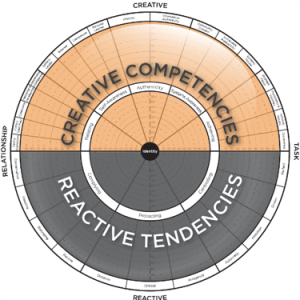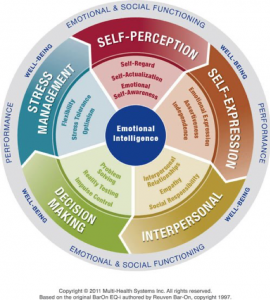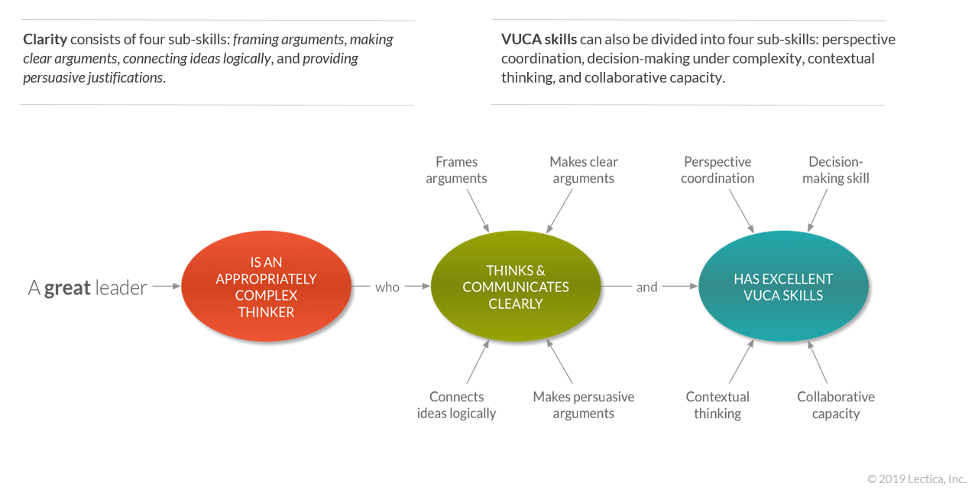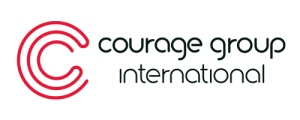Courage Group provides personalized, client-focused coaching to help your leaders and teams reach their personal and professional goals. We work with them to discover and leverage their strengths, create breakthroughs in the way they see the world and take effective actions to achieve results. Possible outcomes include better understanding of their impact on others and the results they want, better relationships with others, more effective coordination of action, practices and strategies for being a more effective leader and greater well-being and personal satisfaction.
“Coaching has a proven impact: add coaching to an initiative and people will focus on that initiative more. As change catalysts, coaches assist with managing the speed of change and smooth transition through change.” – David Rock & Ruth Donde
Our coaches are certified by accredited coach training programs and abide by the International Coach Federation (ICF) Standards and Ethical Guidelines. We work with executives, managers, emerging leaders and teams. Contact us to begin a dialogue about how a coaching relationship with us can best assist you or your organization to realize your desired future.
Watch Now! The Leadership Circle with Courage Group’s Michelle Cooper
The coaching process is not about fixing people! Coaching is a collaborative relationship based on trust between a willing individual (client) and skilled facilitator (coach) that uses focused conversations to help clients discover their purpose, design their future and achieve their goals. We work with a client as a fully resourceful and whole human being taking responsibility for the choices in their lives. We partner with clients in a thought-provoking and creative process guided by our Courage Code. Each client chooses the goals and outcomes for the coaching, based on the future they want to create for themselves. The job of the coach is to listen deeply, be curious and ask powerful and provocative questions. The coach helps clients discover new possibilities for action based on a deeper understanding of how they perceive and act in the world as human beings – including working with language, emotions and body. The client explores and learns the power and limits of their habitual ways of thinking and acting and develops new ways of thinking, interpretations, practices and actions to shift their way of being and doing. As a result, clients produce more constructive and productive behaviours that allow them to achieve their goals and generate ongoing personal learning, and growth.
In keeping with International Coach Federation Standards, the coach and the client establish a coaching agreement that outlines the parameters and mutual expectations of the coaching relationship. An essential part of the initial conversation is about the readiness to engage a process of personal learning or personal transformation. It is all about choice. Everyone benefits from the experience. We work to meet each client on their individual learning edge and journey with them to their desired new heights. We create Summit Spaces. They choose the summit!
As the coaching relationship evolves, the coach will share relevant frameworks, tools, and resources that allow each leader to build an individual “tool kit” to support continued learning and application. Learning from lived leadership experiences is critical to leading in today’s complex work environments. We co-create with clients practical learning experiments that will help them optimize their development. Depending upon the goals and confidentiality of the coaching we may provide shadow coaching or other support customized to the unique goals and circumstances of the client.
We define a team as a group of people who share a common team purpose and a number of challenging goals. The purpose of a team is to coordinate action to achieve results. Members of the team are mutually committed to the goals and to each other. This mutual commitment also creates joint accountability which creates a strong bond and a strong motivation to perform.
The objective of team coaching is to enhance team effectiveness, performance and relationships to enable high performance and results. Coaching is effective at any stage of the team development:
- To facilitate the essential conversations of effective teams and build a strong foundation for teamwork (e.g., purpose, vision, values, agreements)
- To resolve conflict by creating the relational space for deep listening and mutual understanding
- To develop awareness, enhance relationships and renew commitments in existing teams
- To help teams thrive in change and transition
- At the completion of a team mandate to reflect on learnings.
Our goal is to leave the teams with tools, strategies and practices that assist them to continually evolve their level of excellence.
Group coaching is a cost-effective alternative or complement to individual coaching to enable many people that are interested in developing similar competencies to learn together or to have conversations about specific themes or issues. We define a group as a collection of individuals who are interdependent and may or may not work together.
Group coaching leverages the collective talents, wisdom, knowledge, and experience of the group to enable peer learning and development. The coach establishes an environment where it is safe to contribute, learn, explore, challenge and innovate. We call these Summit Spaces. Rather than formal lectures, the process may include plenary coaching, exploration of critical questions, guided conversations, structured questions, and “buddy” work between sessions. Participants reach new heights together. They make meaningful connections with themselves, each other, and the collective while achieving practical results related to the learning goals of the group. In our experience, the connections that they make have a positive impact on their future work together and support building a “community of practice” that helps them to grow their learning after the consultants are finished with the project. A side benefit of group coaching is relationship building across silos or departments that leads to sharing of best practices and enhanced understanding of the interdependency of the group members, which can lead to enhanced organizational performance.
Group coaching is a highly recommended adjunct to formal learning programs to support integration and application of new skills and knowledge and to establish an accountability structure. Group coaching is an ongoing conversation that supports change over time.
We build sustainability into the group coaching processes through skill development that enables participants to self-manage their own coaching after a series of sessions with the coaches. We leave them with tools, structures and processes to continue the conversations and to start new coaching groups as needs evolve.
Assessments are valuable tools to help individuals explore their strengths, their blind spots and reveal a pathway for growth. We prefer to work with tools that are holistic, generative, and developmental. Here are a few of our preferred instruments.
 The Leadership Circle Profile™ (LCP) 360° is a web-based tool designed to accelerate leadership effectiveness beyond traditional competency-based approaches. This is the only 360° competency assessment that simultaneously provides focused competency feedback while revealing the underlying assumptions that are causing a leader’s pattern of strengths and limitations. The measures are correlated with stages of leadership development.
The Leadership Circle Profile™ (LCP) 360° is a web-based tool designed to accelerate leadership effectiveness beyond traditional competency-based approaches. This is the only 360° competency assessment that simultaneously provides focused competency feedback while revealing the underlying assumptions that are causing a leader’s pattern of strengths and limitations. The measures are correlated with stages of leadership development.
What makes this model so powerful is that not only does it assess the level of achievement of five key creative leadership competencies, but it also shows how to develop these by identifying core reactive assumptions that may limit one’s leadership capacities to meet today’s new normal.
There is a simpler version (Manager Edition) for managers that assumes the situations that they face are less complex than the ones faced by seasoned managers and executives. There is also a self-assessment that maps the individual’s perspective on their leadership strengths and areas for development.
The Collective Leadership Assessment™ is the most comprehensive assessment available on the overall health and effectiveness of leadership in the organization. It is based on the same integral framework as the Leadership Circle Profile. This survey reveals how people in the organization view your current leadership culture and how that compares to the optimal culture they desire. The “gap” between the current culture and desired culture instantly reveals key opportunities for leadership development. This tool helps build readiness for change at the team and organization levels. The Collective Leadership Assessment shows how leadership is showing up collectively. It helps you map a course to the kind of leadership culture that will outperform less effective leadership cultures. It is a valuable tool to help you to measure the emerging leadership culture over time and the effectiveness of leader development programs.
EQi 2.0

Emotional intelligence skills are critical for building relationships and teams, resolving conflict, solving problems, leading effectively and building resilience. The EQ-i 2.0 provides you with a detailed assessment of your areas of strength and potential areas for development. You will receive a comprehensive report describing how your EQ competencies work together for effectiveness. It also provides suggested strategies for bringing your EQ competencies into balance for greater effectiveness.
The EQ-i 2.0 assessment is an online self-rating assessment tool, with the option of adding a multi-rater EQ 360. You (and your evaluators) will respond to 133 statements related to emotional intelligence skills. takes approximately twenty minutes to complete.
The participant has a choice of 2 reports: The Workplace Report and the Leadership Report. The Workplace Report puts the emphasis on your workplace performance and the Leadership Report focuses on your leadership effectiveness, each in the context of emotional intelligence. Your comprehensive report provides you with your overall results and presents these using the five EQ composite areas: Self-Perception, Self-Expression, Interpersonal, Decision Making and Stress Management. The report also provides a detailed interpretation of how effectively you are using the 15 EQ competencies and how, by balancing these competencies, you can significantly improve your well-being, workplace and leadership performance, interpersonal relationships and communication.
Lectical Assessments
There is a growing realization in organizations that there is a gap between the complexity of workplace challenges and the capacity of leaders to meet these demands. Organizations need new leadership competencies to meet this complexity gap. The Lectica Leadership Decision Making Assessment (LDMA) is focused on a set of skills for leading in VUCA conditions (Volatility, Uncertainty, Complexity, and Ambiguity).
LDMA Competency Model

It is an assessment that helps leaders learn to design and implement increasingly effective solutions when presented with complex, thorny problems, which means learning to:
- communicate clearly and effectively about complex matters
- identify problems and issues before they become intractable;
- identify and address both proximal and contextual causes;
- effectively identify, clarify, and leverage relevant perspectives to improve the quality of decisions;
- determine when and to what degree collaboration is appropriate in a particular decision making context;
- facilitate and participate effectively in collaborative decision-making;
- create an environment that fosters effective communication, collaboration, and decision making;
- quickly develop decision-making processes that are optimally adapted to particular situations;
- generate multiple plausible solutions; and
- make timely adjustments or corrections.
The LDMA is accompanied by rich diagnostics and personalized learning suggestions. Combined with coaching this assessment can begin to immediately support learning and growth in your organization.
PMC Coaching Assessments
PMC assessments focus on developing a manager’s ability to coach their direct reports. The PMC assessment can provide a snapshot of the overall coaching culture with the Wide-Angle Coaching Assessment (WA) and/or drill down into the specifics of a single manager/direct-report relationship with the Individual Coaching Assessment (IA). PMC helps you to identify and nurture your top talent through their High-Potential Leadership Assessment (HPA). It’s the only assessment in the market that provides a complete profile (‘bottom-up’ and ‘top-down’ perspectives) that predicts a manager’s leadership potential and consequently completes the succession planning cycle. It’s a perfect complement to other tools (personality, cognitive, etc.) and is currently being used worldwide.
Each option includes individual coaching based on a developmental plan. Programs can be scaled to your budget. A unique feature is the option of Rocky AI – an app that supports implementing your individual learning plan independently.
